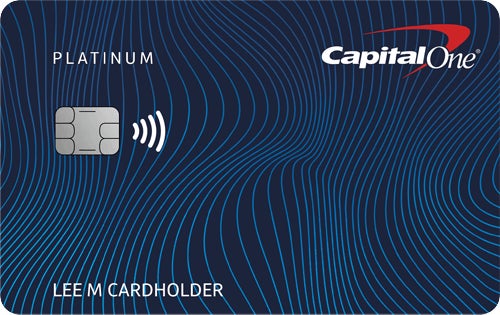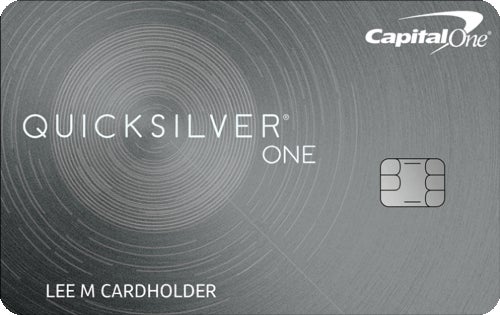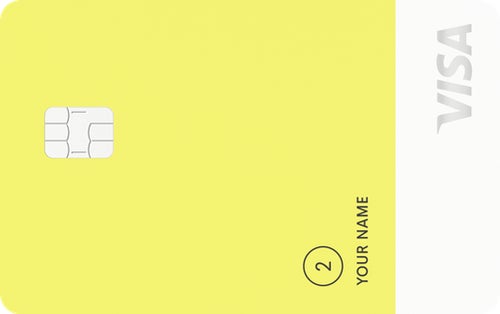Both the Capital One Platinum Credit Card* and Capital One QuicksilverOne Cash Rewards Credit Card* are good cards to start establishing a credit history.
There are a lot of similarities between these cards, but a couple of glaring differences -- namely the Platinum Credit Card’s lack of rewards and the QuicksilverOne’s annual fee. Despite the annual fee, the QuicksilverOne will be the better choice for more people because the annual fee is relatively low and the rewards program has the potential to outweigh any costs. You’ll have to spend over $2,600* with the card in order to offset its annual fee.
Annual fee
Winner: Capital One Platinum Mastercard
The Platinum card is an obvious winner on upfront costs since it has no annual fee. If you don’t plan to spend much on the card and prefer to keep it as an emergency credit card in case of unexpected expenses, this card will be lower maintenance overall. Still, for many cardholders, the QuicksilverOne’s rewards program may be able to outshine its annual fee.
APR, or interest rate
Winner: Tie
Both credit cards feature an APR of 29.99% variable, which is relatively high, so it won’t come down to the APR for which card is the better choice. That said, we recommend paying your credit card balance in full each month in order to avoid paying interest charges, and to show credit card issuers you have responsible habits.
Rewards
Winner: Capital One QuicksilverOne
The clear winner when it comes to rewards is the QuicksilverOne card. It features 1.5% cash back for every purchase, plus 5% cash back for hotels and rental cars booked through Capital One Travel. The Platinum card offers no rewards.
*However, you’ll have to make sure that your budget allows you to spend $2,600 annually with the QuicksilverOne. That would have you breaking even with the card’s annual fee, as 2,600 x .015 (1.5%) is $39. To turn a profit, you would need to spend more than that. If $2,600 in spending per year isn’t something you’re up for, then the Platinum card might be the better option.
Credit requirements
Winner: Tie
Both credit cards are designed to help people with limited or fair credit obtain stronger credit scores. As such, both cards have a recommended fair credit requirement. This typically means you’ll need a credit score of 580 or higher.
Building credit
Winner: Tie
Both credit cards are intended to help improve your credit score through responsible use. That means using the credit card regularly and then paying it off on time each month. Both of these cards can be used to do so. Make sure you don’t miss a payment and your credit score can improve in as little as a few months.
Both cards offer automatic credit limit reviews. Capital One will periodically review both credit cards for an automatic credit limit increase in as little as six months. A higher credit limit will lower your credit utilization as you’ll have a larger amount of overall credit, and will therefore be using a smaller percentage of it. Again, a lower credit utilization will contribute to stronger credit scores.
No matter which card you choose, you can also access Capital One’s CreditWise tool. You can use it to monitor your VantageScore 3.0 credit score from your TransUnion credit report to track your progress. Anyone can access CreditWise, not only Capital One cardholders.
The bottom line
While both credit cards can help you improve your credit score with responsible use, the Capital One QuicksilverOne is the card to pick. While it does require a $39 annual fee, it also offers 1.5% cash back for your purchases, which means if you spend at least $217 on the card each month, you’ll essentially earn enough to cover the cost.
FAQs
You could, but it wouldn’t make sense to do so. Both cards are designed to do the same thing, which is to improve your credit by building a positive history of on time payments.
No. If you’ve just gotten your credit score to a good spot, closing a credit card will have a negative impact on your credit because your credit utilization will go up and you’ll lose the benefit of having an aging credit account on your credit report. In some cases, however, closing a credit card could be a good idea if it’s difficult to manage multiple accounts or if the credit card has an annual fee and you’re no longer using it.
The FICO score ranges are:
300 to 579: Poor
580 to 669: Fair
670 to 739: Good
740 to 799: Very good
800 to 850: Excellent
Credit score ranges for VantageScore are:
300 to 499: Very poor
500 to 600: Poor
601 to 660: Fair
661 to 780: Good
781 to 850: Excellent
*All information about the Capital One Platinum Credit Card and the Capital One QuicksilverOne Cash Rewards Credit Card has been collected independently by CNET and has not been reviewed by the issuer.
The editorial content on this page is based solely on objective, independent assessments by our writers and is not influenced by advertising or partnerships. It has not been provided or commissioned by any third party. However, we may receive compensation when you click on links to products or services offered by our partners.



